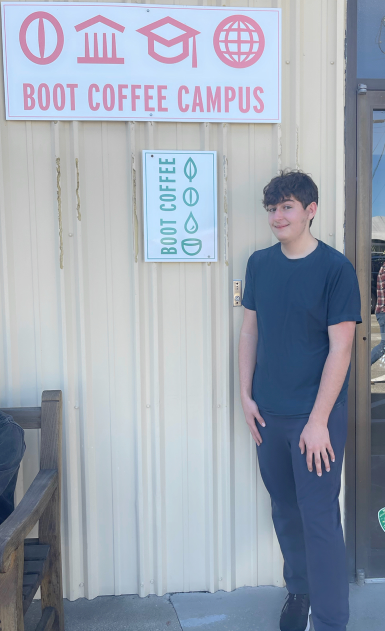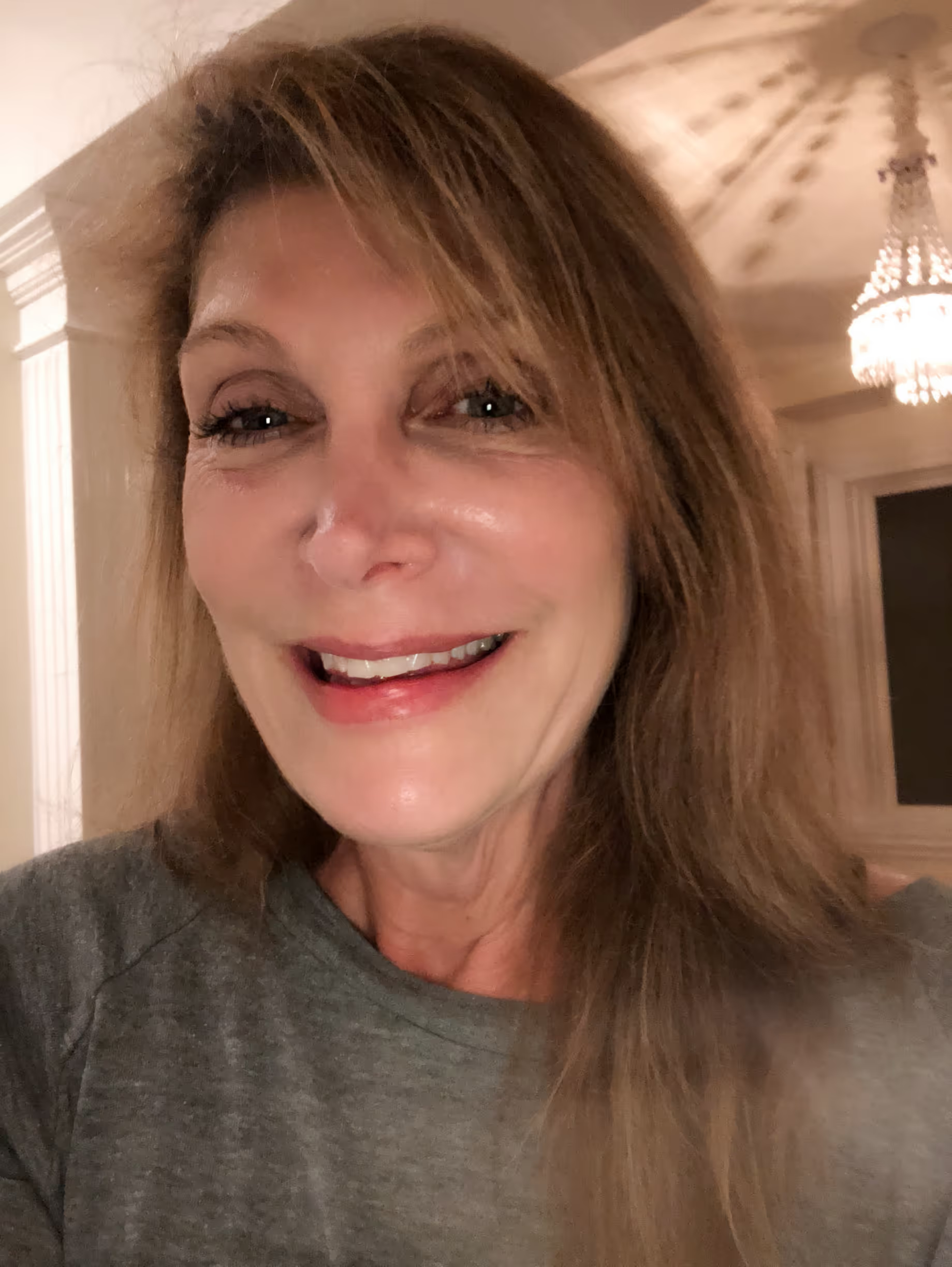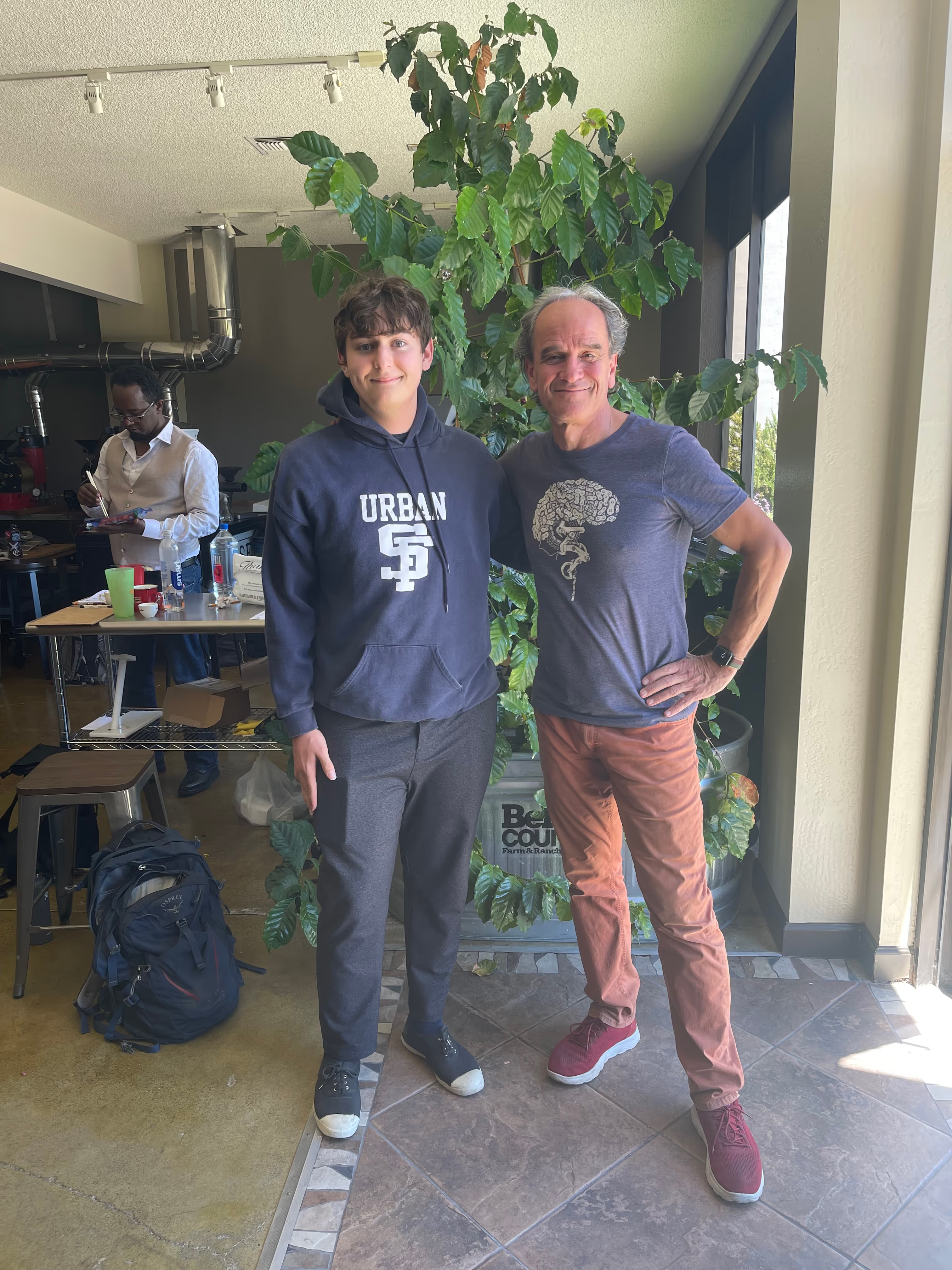

All throughout the coffee industry, Q Graders are involved in several unique roles in the supply chain – some working as quality control managers at a roasting company or importer, others working directly in coffee producing countries to differentiate quality, and some running a family-owned business.
In this community chat, we had the opportunity to speak with mother and son Q Grader duo from the United States – Elise Papazian and Oliver Pritikin. Elise runs a 14-year-old online coffee company, GoCoffeeGo.com. She and her late husband, Scott Pritikin, began their business because they were passionate about coffee and they felt that bringing roasters together on their site would empower them, while also bringing consumers access to rare and unique roasts. Scott passed away in 2017 and Elise carried the torch. Their son, Oliver, started casually joining the team during cuppings when he was in 7thgrade – intrigued by the sensory aspect of coffee evaluation.

HOW DID YOU FIRST HEAR ABOUT CQI?
Although Oliver was in middle school at the time - he had always been fascinated by the scientific aspects of coffee - he did some research regarding quality evaluation in coffee, eager to take his interest to the next level. He came across several articles about the CQI Q Arabica course – specifically regarding the individual exams included in the course. He liked the fact that it was objective and that the course also incorporated general knowledge and business practices. Oliver spoke to his mom, and they decided to take the course together.

WHAT MADE YOU WANT TO BECOME A Q GRADER?
Oliver had been interested in sensory stuff since he was young – specifically scents and aromas. He often thought of what makes a scent a scent, what particles are involved, the sweetness, the tartness, etc.
He also began drinking coffee early in life, but as he became more involved with the family business, he wanted to go from someone who likes coffee to someone who truly knows coffee. Both Oliver and Elise stated that the Q Grader course was an educational investment. Oliver began his course in 2019 while he was still in 7th grade – but due to COVID he could not complete his certification until 2022. That makes him one of the youngest Q graders in the world.
HOW HAS THE Q ARABICA GRADER CERTIFICATION HELPED YOU UNDERSTAND QUALITY AND YOUR DECISION-MAKING PROCESS FOR GO COFFEE GO?
Oliver: I can critique roast profiles and understand if roasters are being safe – or ambitious -and understand better if the coffee is reaching its full potential.

Elise: It taught me to look at coffees differently. It helped me break down WHY I felt the way I felt about a coffee, as opposed to saying, “I just love this coffee”.
Elise also noted she could articulate the qualities better and explain why one coffee is of a higher grade than another. She can communicate and give more feedback to the roasters featured on their site.
“By communicating with a common language of coffee, coffee producers are going to understand what roasters want, and roasters understand what the public wants.” - Elise
DO YOU HAVE ANY TIPS OR ADVICE FOR THOSE PREPARING FOR THE Q GRADER COURSE?
Elise and Oliver: YES!

Elise and Oliver also wanted to remind everyone that the instructors want you to succeed, they want you to pass, and they are there to support you. They also met a ton of interesting people from around the world during the Q Combo course – people they never would have met otherwise. Elise described the room as being full of “random people, but with a unified interest”.
Oliver wants to continue working in coffee once he finishes high school – potentially exploring more of the roasting process, as he is interested in how coffee beans and cacao react to heat.
If you have an interesting story to share about your CQI education and how you have applied it to everyday life – send us an email, info@coffeeinstitute.org.